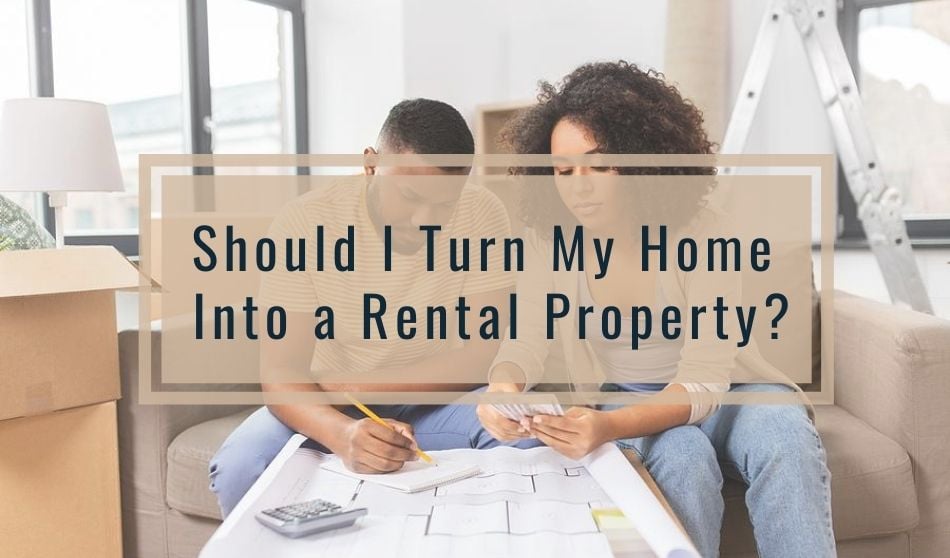
Moving is always stressful, regardless of the reason you must do it. Whether you are facing a layoff and are in search of a new job opportunity, wish to move closer to family, or are simply in need of a new adventure, there is a lot to consider before moving. This is especially true if you are a homeowner.
Before you pack your first box, you need to plan out your finances and figure out what to do with your current home. While the majority of homeowners will opt to sell their home and purchase a new one, that is not the only financially wise move. Here are some considerations if you are wondering if you should turn your home into a rental property.
Benefits of Deciding to Turn Your Home into a Rental Property
The benefits of owning a rental property can be very enticing. Having a reliable source of passive income is every investor’s dream, and a healthy portfolio of rental properties can certainly be the golden goose that supplies that passive income. If you currently own your home and wish to relocate, turning your home into a rental property can allow you to move without the hassle of selling your home.
If you are relocating for a semi-temporary situation (such as a sick family member in need of care, or a layoff or furlough that has caused you to seek temporary employment) you may enjoy the benefits of keeping your home with the intention to return to it in a year or two. Renting your home can even allow you to become a renter yourself and downsize temporarily while maintaining your mortgage payments and even turning a profit.
Downsides of Deciding to Turn Your Home Into a Rental Property
The benefits of owning a rental property are substantial, but they do not come without risk–particularly if you are facing an economic downturn. After all, your ability to maintain your rental income is solely dependent on your tenants’ ability to pay the rent. If your tenant stops paying rent due to a crisis, you too will face financial hardship. Landlords should have a reserve fund for emergencies and home repairs. You will also need to decide whether you would like to rent out your home and become a true landlord, or you would simply like to hire a property manager to take care of your daily rental responsibilities.
Steps to Evaluate Before Committing:
Step One: Assess Your Current Mortgage (if You Have One on the Home)
Mortgages for primary homes often require that you live at the residence for at least 12 months. Home mortgages for primary residences offer perks like lower interest rates and lower downpayment requirements. If you attempt to turn your home into a rental property before you have reached the required timeline, you could be committing mortgage fraud. This means your lender could call in the loan and your house would go into foreclosure. Before considering turning your home into an investment property, you must do your due diligence to ensure that you have met your lender’s requirements for time lived in your home.
Step Two: Verify Any Relevant HOA Restrictions
If your home resides within a neighborhood governed by a Home Owners Association, you need to find out if you are even allowed to rent out your home. Some HOA’s have no rental restrictions, some allow only a set amount of homes within the neighborhood to be allotted as rental properties, and some even prohibit on rentals altogether. You must understand your HOA and your obligations within their guidelines; remember that if you are allowed to have a rental property, your renters will be obligated to follow the HOA rules and regulations as well.
Step Three: Understand the Implications of Becoming a Landlord
Having an investment property can be a great source of passive income, but it can also come with its fair share of obligations. You must abide by the rules laid out in the Fair Housing Act, and understand your local and state landlord-tenant laws. This is a lot for any new landlord, but it can be increasingly difficult for someone already making a life transition such as moving.
Step Four: Understand Your Financial Situation and Options
You first need to decide whether you will leave your current home and purchase a second home to act as your primary residence. If you are choosing to move and purchase a second home, find out if you will qualify for another mortgage before initiating the rental process. Remember a lease agreement is a legally binding contract; the last thing you want to do is enter into a lease agreement with a prospective tenant only to find out you don’t have anywhere to live when everything is finalized.
Steps to Turn Your Home Into a Rental Property:
If you’ve weighed the pros and cons of turning your current home into a rental, and you decide to take the plunge, here are the steps you need to take.
Step One: Change Your Insurance Policy
While some landlords assume they can rely on their standard homeowners insurance to cover their rental units, homeowners coverage is usually not sufficient to protect an investment property. You must change your policy from typical homeowners insurance to a landlord insurance policy. These policies are designed to provide added protection for financial loss and certain obligations only pertinent for landlords–such as legal fee coverage and liability coverage.
Step Two: Consult a CPA or Tax Professional
Owning a rental property is a significantly different asset when it comes to taxes. Be sure to consult with a tax professional to determine your obligations regarding taxable income from your rental property as well as what deductions for which you can qualify.
Step Three: Decide on Your Management Approach
Decide if you want to spend the time and effort to self manage your rental property, or if you would like to earn hassle-free passive income by hiring a property manager. There are pros and cons on both ends of the spectrum, so be sure you understand exactly what a property manager does before you decide. If you are just starting out it can be tough to add another expense, and if you are a DIY guru with time on your hands, you may find that being a landlord and self-managing your rental property is a challenge you are happy to take on. However, hiring a property manager allows you to pass on the burden of marketing your rental, tenant screening, and even legal responsibilities onto a seasoned professional.
Step Three: Prep Your Property to Go on the Market
Before renting out your home, you will need to make any necessary updates. If you hire a property manager, they will be able to advise you on any needed changes for safety or marketability. If you decide to go it alone, you will need to do research to find out any requirements outlined in your state’s landlord-tenant laws and habitability regulations. Use a rental property safety checklist to tick off the most important boxes, and research comparable rentals in your area to make any renovations or property improvements that you need to attract the best tenants possible.
Final Thoughts:
Turning your home into a rental property may require more logistical leaps than you expected, but after you have fully considered your options, you may find that renting out your home is the perfect solution to your needs. If you enter into the transition with a comprehensive understanding of the risks and rewards, you’re much more likely to find success as a new landlord or property owner.





